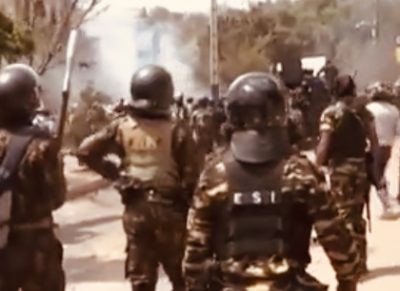Madagascar President Dissolves the Government after Mass Protests
Michiyo Tanabe, Noriko Watanabe, and Sawako Uchida
Modern Tokyo Times

At least 22 people have been killed since protests erupted in Madagascar. In response, President Andry Rajoelina announced the dissolution of the government in an attempt to connect with the youth-led movement that is challenging his administration.
Similar waves of protest have recently emerged across the globe. Countries such as Indonesia, Kenya, Nepal, and the Philippines have seen significant unrest. Meanwhile, disillusionment and demonstrations are also spreading across parts of Europe, including France and the United Kingdom.
France 24 reports, “Protesters have voiced anger over persistent water and power cuts that often leave homes and businesses without electricity for more than 12 hours each day across one of the world’s poorest countries.”
Rajoelina said, “We acknowledge and apologise if members of the government have not carried out the tasks assigned to them.”
He continued, “I understand the anger, the sadness, and the difficulties caused by power cuts and water supply problems. I heard the call, I felt the suffering, I understood the impact on daily life.”
The president acknowledged the need to build bridges with the younger generation, while also pledging support for the business community caught in the crosshairs of the crisis.
Protests in the capital, Antananarivo, have shaken the political establishment. However, it remains uncertain whether these demonstrations will subside in the short term.
It is known that 22 people have been killed since the protests began. The heavy-handed response by security forces — including the use of rubber bullets, tear gas, and other means — has also left many injured. These deaths, along with the forceful tactics employed by the police, underscore that the president must go beyond words. Genuine accountability is now essential.
Not all the deaths are accountable to the police.
The Guardian reports, “The UN’s human rights office blamed a ‘violent response’ by security forces for some of the deaths, with other fatalities caused by violence and looting by gangs not associated with the protesters.”
Madagascar’s current president first came to power in a 2009 coup. He later stepped down in 2014 but returned to the political stage by winning the 2018 presidential election. In 2023, he secured a third term, though the vote was marred by reports of polling irregularities.
Volker Turk (U.N. high commissioner for human rights) said he was visibly shocked “at the violent response by security forces to the ongoing protests in Madagascar.”
The UN says that protests against the government began peacefully. However, “the security forces intervened with unnecessary force, lobbing tear gas and beating and arresting protesters. Some officers also used live ammunition.”
Lee Jay Walker (Modern Tokyo Times analyst) says, “As in many nations, Madagascar’s marginalized communities face daily poverty, struggling simply to get by. Meanwhile, the political elite remain detached, living in comfort and isolation. It remains to be seen whether the new government will truly listen to the voices of ordinary citizens — people who are seeking hope, not more failure or cronyism.”

Modern Tokyo News is part of the Modern Tokyo Times group
http://moderntokyotimes.com Modern Tokyo Times – International News and Japan News
http://sawakoart.com – Sawako Utsumi and her website – Modern Tokyo Times artist
https://moderntokyonews.com Modern Tokyo News – Tokyo News and International News
PLEASE JOIN ON TWITTER
https://twitter.com/MTT_News Modern Tokyo Times
PLEASE JOIN ON FACEBOOK